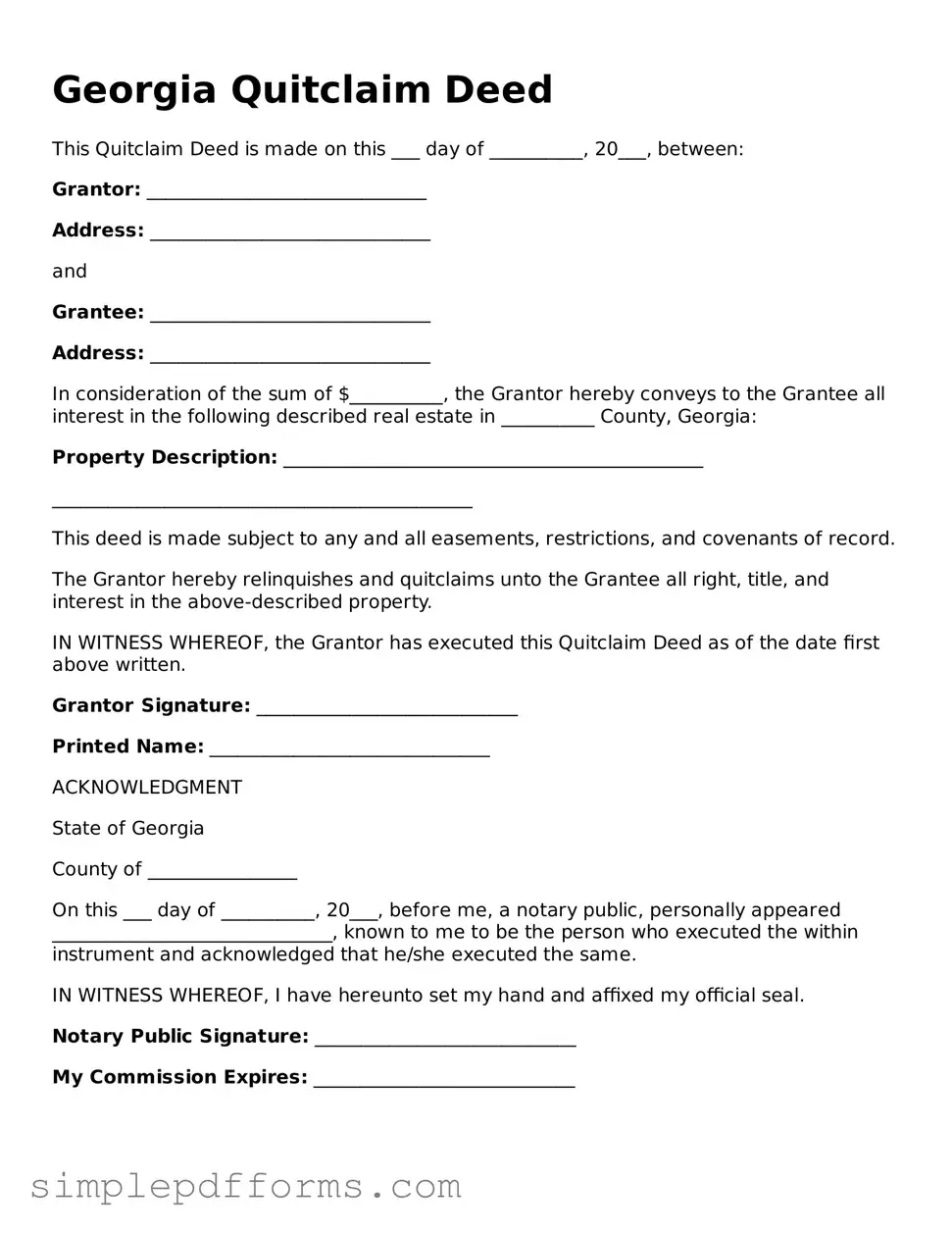Attorney-Verified Quitclaim Deed Document for Georgia State
A Georgia Quitclaim Deed is a legal document used to transfer ownership of real property from one party to another without guaranteeing the title. This form is often utilized when the grantor wants to convey their interest in a property, but does not wish to make any promises about the title's validity. Understanding how to properly use this deed can simplify property transactions and clarify ownership rights.
Open Quitclaim Deed Editor Now

Attorney-Verified Quitclaim Deed Document for Georgia State
Open Quitclaim Deed Editor Now

Open Quitclaim Deed Editor Now
or
Get Quitclaim Deed PDF Form
Your form is waiting for completion
Complete Quitclaim Deed online in minutes with ease.